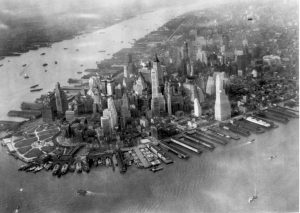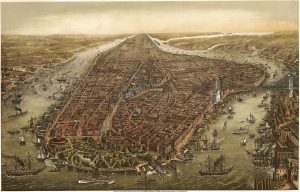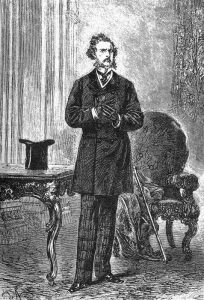Life in a pendrive
Life in a pendrive
We forget the past and become slaves of the present
This story begins very everyday. Papers grow. The flat is getting small. Family loses patience. Bad husband! Crazy! You must have the syndrome of Diogenes, you keep everything. This floor might collapse at any time with so much paper onit, poor neighbors! And you kill trees! Actually, you’re becoming a public enemy. We have to fix you urgently! There’s a very good self-help book that showshow to get rid of things. Another book? More paper? Oh, no! Don’t buy it! Don’t even keep it. You borrow it and later you pass it. This wonderful book Will teach you how to prepare psychologically to say goodbye to the object to be disposed. The recipe is simple. You put objects standing in formation and then you tell very affectionately to each one: “thanks for the services rendered but time has come to say goodbye.» How good is to have again room at home! You are no longer a public danger. You feel so good that you WhatsApp friends telling them the big exploit, this does not occupy space.
The travel across space, and the travel across time
But farewell is a terrible word, it is the end, to sink into oblivion. How about history? How about scrutinizing the past through ancient objects, old photos, tiny magic spots that allow us to travel across time? Today there is a deep infatuation for tourism, we want to move geographically, i.e., across space. We want to reach the back of beyond, we waste loads of kerosene but we barely understand those who live in the back of beyond, we do not know much of their history, nor their culture, nor what they think or what they feel. We pollute, we invade and strive until the exotic ceases to be exotic. Space travel does not suit us so well. We don’t realize. Amongst all that fever to travel across space, it is weird that so few individuals feel interest to travel across time. They forego an enormous potential since time makes an excellent travel agency. Thisis so because the passage of time is a very tough judge who puts everything in the right place, it separates the grass from the straw, it tells us what has become a classic and what was just a fad, i.e., it discards the crappy destinations. Time, and history, point to us where others mislaid. Time travel is a doorway to truly exotic adventures and forlorn lands. Not bad at all.
But we stubbornly deride this gift brought by posteriority as outdated antediluvian. We dislike stagnation and deem history as boring. John Lennon, boring? Is to delve into the 1930s to see how it rhymes with today stagnation? Not dull but rather scary. To be a time traveler who explores the past can be far more exciting that being an astronaut across galaxies, even if you happen to be called Han Solo in the Millennium Falcon.
l Halcón Milenario.

Manhattan, New York, in 1914

Chinese counterpart: district of Pudong, Shanghai, in 1912


Manhattan in 1931 and in 1630

Pudong, Shanghai, circa 1900
The claws from the present
Admittedly, time travel has to overcome a huge hurdle. You must dare to break the spider web that binds us to the present. Firstly, you’ll face all that myriad of Twits, WhatsApps, emails or instagrams that never leave us alone. To cut off is very difficult. The web of the present also includes all that kind of leveraged journalism forced to satisfy its creditors with Articles written by grateful stomachs. To make things even harder, many of those grateful stomachs have the gift of the gab and are able to turn absolute nonsense into literary pieces. Those mighty creditors also have their own experts very adept at finding ways to grab you in their spider webs, that is, their websites. They even put teasers like «a year ago today» found on Facebook or Google. To look at last year’s photos is okay but if we are neglectful, we are going to end up remembering just what they want us to remember. To get rid of all thisis certainly hard. It cannot be denied that there is still some worthy press left that does its job. And it is also true that part of this web of the present constitutes that heat of the stable so much needed to not feel alone. And yet, even knowing how hard it is, it would be good to get free from the omnipresent present every now and then and to look at whatever lies beyond for a while, just to break with routine.
The second impediment to escaping from the present lies in our own capabilities. Imagination and intuition are nourished by remembrances we keep in our mind but, unfortunately, memory is limited and needs stimuli and lures, a little spark to start the engine for takeoff. We need to find objects that evoke what is hidden in the depths of our mind, an old photo, an article in a ewspaper from twenty years ago, a manuscript found in a bottle… but, how terrible! Old junky papers are all gone! Since they did not fit… We fall into amnesia as poor Winston Smith in Orwell’s “1984 «. We are caught into the amnesia of the present. What am I going to do? Poor man!
But we are luckier than troubled Winston Smith in dingy «1984». We have a hope. Lately we’re being visited by some aliens that go every where. First came the Samsungnians, from planet Samsung, in the east end of the galaxy. Shortly after, came the Huaweians, the Xiaominians and the Elgians. Later, arrived the Nexians, from the western end of the galaxy. We have got Martians galore and you deal with them with maximum care because they are the ones who weave most of the nets that grab us to the present. But, through their plots, they allow us a way out, that is, they help us to capture the past and to digitize it. What a camera! What a picture with so much resolution! What SD cards! And if capacity is not enough, a 250G pendrive will do. At this moment we have to admit that our journey will require some flair in organizing our data. It’s like in Hansel and Gretel’s tale, we need to leave trails on the way lest getting lost. And it is crucial those trails are our own trails, our own folders and our own classifications, made in that way so specifically ours. These are the hallmarks of our route, our treasure map. Let’smake them logical, easy to follow for others, but they must be ours. This task cannot be left to others like Apple applications, a thick huge web, a Charybdis with no escape. And if you have digitized and saved well, then you will have escaped the web and you’ll have the world in your arms. More than this! you’ll have the Time Machine!

Hansel marks the road
CODUWI: Context, durability and free will
A first advantage of photos and in PDFs is stillness. We catch freeze a spot in space-time, a piece of reality as it was at the time it happened. Photos keep things in their element, their context, next to the other things that were there at the time it happened. This might include other articles and news from that day’s newspaper. Likewise, in the picture of something or somebody it also appears something in the background that could tell us many things. An intelligent search on the Internet is quite the opposite, it is like going by plane, from origin to destination, fast, efficient, and direct, i.e., without looking at whatever lies in between. Internet searches and trip by plane bear a resemblance to the Phileas Fogg of Verne’s “80 Days around the World”. Old friend Phileas actually managed to surround the world in 80 days but he went through only staring at his card game. But PDFs and photos bear more similarities to land travel, a very different way to travel, as did Ibni Battuta and Marco Polo. Land travel involves stepping in every soil tha tlies between the origin and destination. And, as Cavafis says in his poem, when you get there, it doesn’t matter you find Ithaca is poor. Ithaca gave you the journey and everything you’ve learned from it, which matters more than destination.

Phileas Fogg
Secondly, we have the advantage of durability. Time ages everythingthat has a weight, nothing is spared, paper dries, flowers wither, liquid becomes corrupted. We all age and rust little by little. The passage of time erases us inexorably, dims us, fainter and fainter until we no longer exist. The Sands of Time might cover everything but digital photos, and 0s and 1s remain completely pristine, as brand new. Wise Plato already said that the idea of dog is more real than any dog we can find on the way. Dog life is short and every dog, as people, has its own aches, its own defects and flaws. Tangibles age, fade, evaporate, disappear, they are ephemeral, but intangibles endure. And Plato’s exploit is that when he said this in a time without pendrives and computers.
But there is still a third issue, perhaps what matters the most, and that is free will. The world of ideas and intangibles cannot be seen and does not weigh. Therefore, it is not subject to the laws of nature, it is free. This issue was already a concern for Calderon de la Barca in his play «Life is a Dream «. «The more I live the less free I am» says the main character Sigismund wondering if we could avoid the fate foreseen in bad omens. The question if we do have a free will has ever been a concern. It is modernly embodied in the Clash between determinism and indeterminism thought, that is “the clocks and the clouds”. Determinism states that reality is similar to a mechanical clock, everything that happens can only happen because there is something that makes it happen the exact way it happens. It is never a more-or-less, there is always a photo finish because between two real numbers there is always another, just try to add more decimals. Everything is determined, as in a mechanical pinion. Deterministics think that everything is determined, that nothing is left to chance. Chance, call it freedom or choice, is just a lack of knowledge. But this is a full attack to the subjective individualism that prevails today. That’s why indeterminists are increasingly popular. Indeterminism doesn’t believe in watches but in clouds. They state that quantum and molecular physics show that pure randomness does exist. A butterfly’s flutter in California can cause a tsunami in Hong Kong. Our future is not determined. Freedom appears to be the ultimate winner, but it is an apparent victory, a futile victory because, at the end of the day, dices decide, not us. The result is gloomy, our much-cherished freewill is just that: a pure chance. Sure?
Nafta, the picturesque character that appears in Thomas Mann’s novel «The Magic Mountain», argues that the world is dual, i.e., we have a material realm, and we have something else, the intangible, the spirit, the ideas, the 0s and the 1s. Feel free to name it as you like, since nobody Will prove you wrong. And those 0s and 1s have a life of their own that escapes from the terrible laws of nature. Ideas are free, they hide in a region where free will does exist. We want to trap ideas with logic, but Muses will always escape us, because they are free. And this is how picturesque Nafta has saved ourlives. Free will takes refuge in the immaterial.
But there’s a problem here. What if the pendrive breaks before it is due? Let’s imagine that Beethoven’s body is a pendrive. He has already the Ninth Symphony in his head, it should be codified in 0s and 1s since we must remember Beethoven is a pendrive. Suddenly, a heavy piano fall into him beforehe has a chance to write his symphony. The pen is broken and the Ninth Symphony will never exist. This could also be the case of Einstein’s Theory of General Relativity,or, if it had happened to Helmut Grimm, there would not be Cinderella nor Sleeping Beauty nor Snow White nor even Ratpunzel. It sounds terrible.
Maybe a way out is teaching, sharing, and sending WhatsApps. But the first condition to share is that you must have something to share, a different trading card, something original. If we made our travel across time, our WhatsApp will surely be more interesting. At this point, I can’t say any more. There are many doubts, a lot to think about.